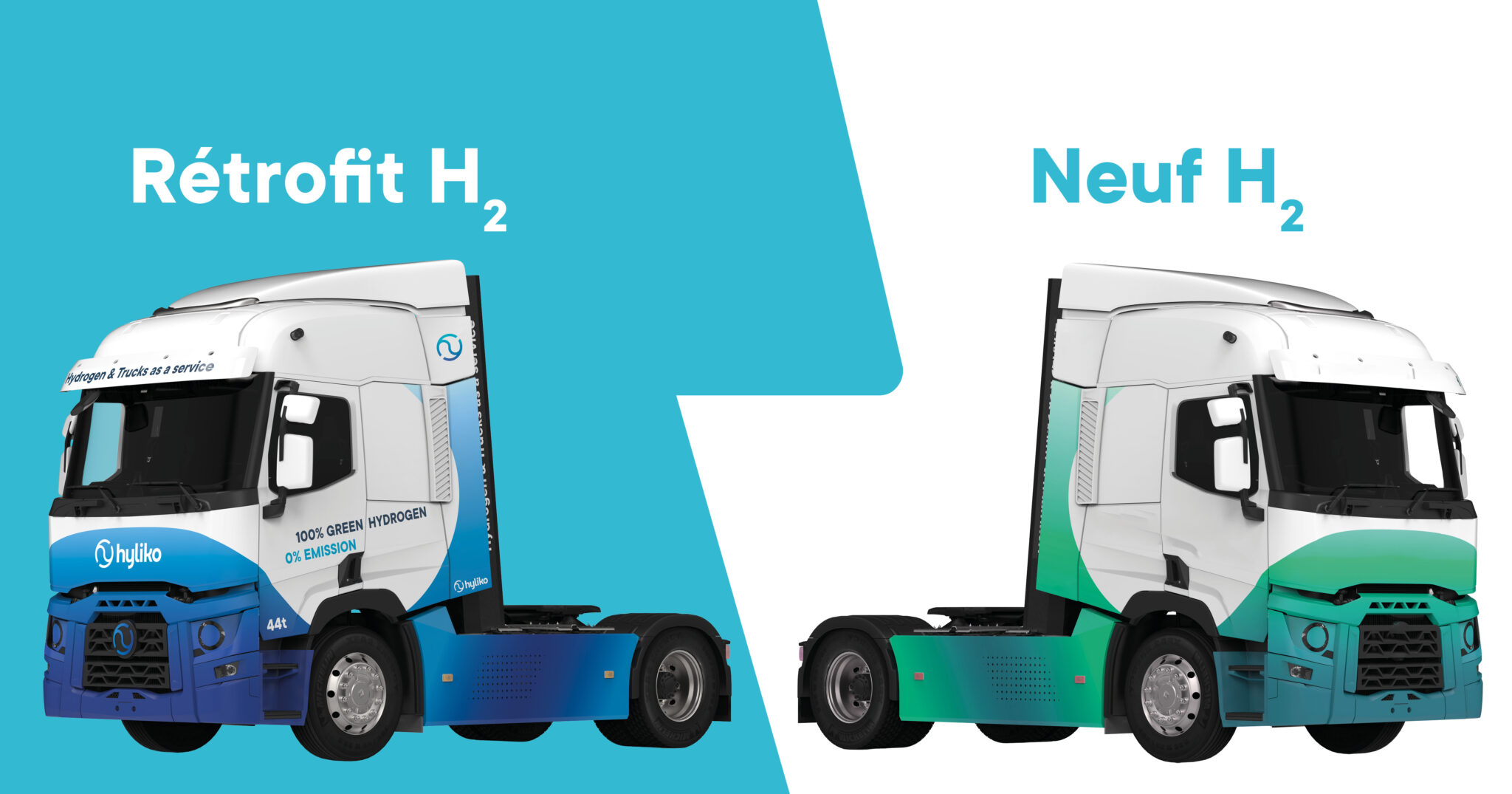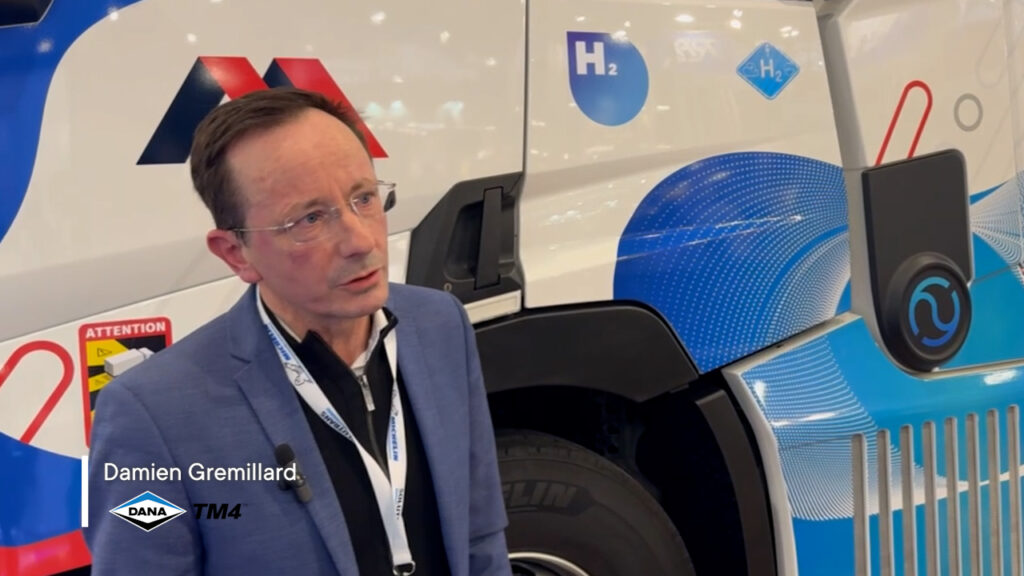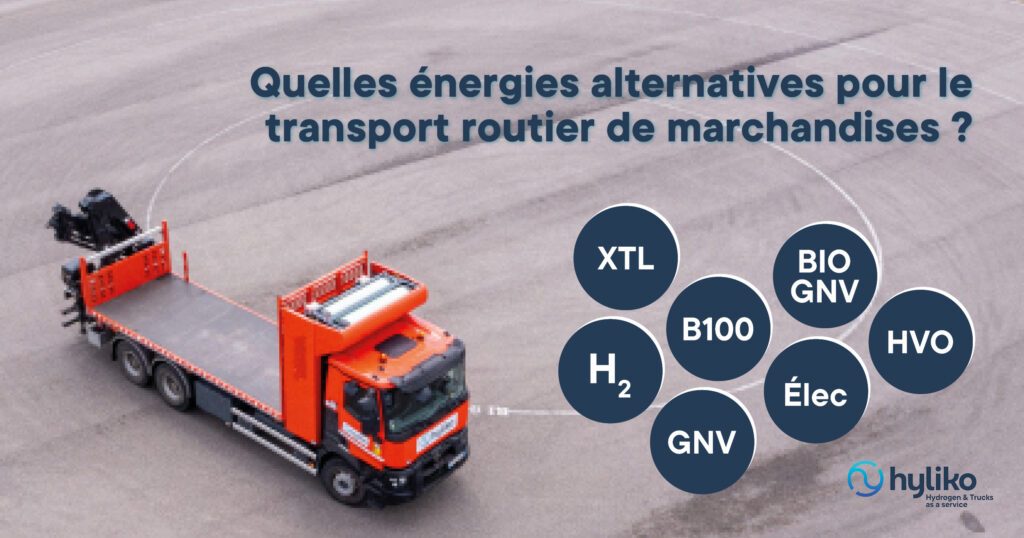Road transport is facing major challenges linked to the reduction of greenhouse gas emissions and the need to adopt sustainable solutions. With this in mind, hydrogen-powered trucks are emerging as a promising alternative to heavy vehicles that run on fossil fuels, which are polluting and non-renewable. To provide an effective response to the sector’s problems, the players involved are working together to offer the most eclectic range possible, using alternative, high-performance energies to meet their needs. While the historic HGV manufacturers are working on the manufacture of new hydrogen vehicles, other players are working on the conversion of thermal trucks to zero emissions. This operation is commonly known as retrofitting, and these players are known as “retrofitters”. Discover the advantages of a retrofitted hydrogen truck and those of a new hydrogen truck.
What is a hydrogen truck?
Hydrogen trucks are in fact hybrid electric hydrogen trucks. The hydrogen contained in pressurised tanks is transformed into electricity by passing through a fuel cell. This electricity powers both an electric motor and batteries. The batteries supplement the electricity supply during power peaks, such as when the vehicle is loaded up and heading uphill. The only by-product of this process is water vapour – unlike other vehicles, which emit pollutants that directly compromise air quality. For example, the carbon footprint of a diesel vehicle is estimated at 1.093 kgCO2eq/km* from well to wheel, while a vehicle running on green hydrogen will have an impact that is less than half that at 0.482 kgCO2eq/km* and still with no tailpipe emissions. The hydrogen fuel cell truck therefore has the advantage of offering significant energy storage and excellent environmental performance. The fuel cell involves adapting the vehicle architecture by integrating batteries, hydrogen tanks placed behind the cab and an electric motor. Hydrogen combustion engine technology is also being developed, and will certainly be able to complement fuel cell technology in certain applications. *Based on vehicle life cycle analysis – Source: ADEME Carbon Base – 2024.
What is a hydrogen retrofit for a truck?
The aim of a retrofit is to transform a polluting vehicle into a zero-emission vehicle, using either hydrogen fuel or electric power. In a hydrogen retrofit, the polluting components of a diesel HGV chassis are replaced by a hydrogen-electric hybrid powertrain. By retrofitting, hauliers are taking part in a genuine circular economy approach and accelerating their ecological transition, since it enables them to use a vehicle taken from their fleet or from the second-hand vehicle market, giving it a second life in line with the new decarbonisation criteria.
What are the advantages of hydrogen retrofit trucks?
From 2024 onwards, manufacturers will gradually bring their first new models onto the market. In addition to this new fleet of vehicles, hauliers are also retrofitting trucks already in operation with hydrogen, while retaining their existing configuration and architecture. By opting to convert an existing diesel vehicle in their fleet, transport operators benefit from the advantages of a complete vehicle upgrade in just a few months. Hauliers who have already put fleets into service can extend the fleet life of their vehicles. This opportunity has the effect of reducing CO2 emissions in the context of the Life Cycle Assessment (LCA) of trucks. By using chassis taken from existing fleets or from the second-hand market, certain polluting stages in the manufacturing process are eliminated.
What are the advantages of new hydrogen trucks?
The expertise and proven technology of manufacturers in the field of mobility and their ability to produce in volume make them key players in the market. When you buy a new vehicle, you can include customised, made-to-measure options when you place your order.
How do you choose between a new or retrofitted hydrogen vehicle?
Hyliko‘s conviction? The energy transition must be zero emissions, zero compromise. So both a new vehicle and a retrofit vehicle are attractive options. There is no right or wrong choice, simply the choice that is best suited to your HGV use. That’s why Hyliko can help you find the best zero-emission solution for your business, whether it’s a new vehicle or a retrofit. According to Hyliko, a retrofitted hydrogen truck and a new hydrogen truck will have similar energy consumption* and TCO**. The trade-offs will therefore be based more on :
- The level of intensive energy requirements (km + frequency)
- Use case (bodywork)
- The technical availability of the vehicle solution
It’s also important to stress that adopting a mixed approach can take shape within a diversified fleet, combining new and retrofitted hydrogen vehicles to meet all uses, in addition to a more global energy mix. By including new and retrofitted vehicles in our full service leasing offer – by our own teams – we can guarantee that hauliers will be guided towards the vehicles that are objectively best suited to their needs. No impact on costs: the Hyliko solution is tailor-made and therefore invoiced according to the specific equipment and use of each vehicle, whether new or retrofitted. *under similar conditions of use **total cost of fleet ownership


